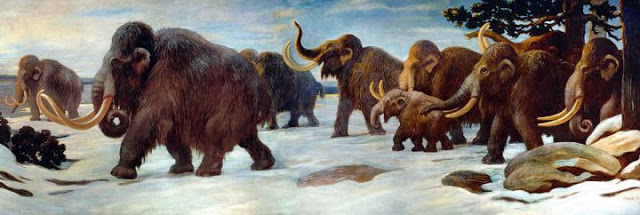

| Online: | |
| Visits: | |
| Stories: |

| Story Views | |
| Now: | |
| Last Hour: | |
| Last 24 Hours: | |
| Total: | |
Genomic Meltdown Hit Woolly Mammoths Just Before Extinction
Woolly mammoths were one of the most common large herbivores in North America, Siberia, and Beringia until a warming climate and human hunters led to their extinction on the mainland about 10,000 years ago. Small island populations persisted until about 3,700 years ago before the species finally disappeared. Researchers compared existing genomes from a mainland mammoth that dates back to 45,000 years ago, when the animal was plentiful, to one that lived about 4,300 years ago.
The comparison gives researchers the rare opportunity to see what happens to the genome as a population declines, and supports existing theories of genome deterioration stemming from small population sizes. The study also offers a warning to conservationists: preserving a small group of isolated animals is not sufficient to stop negative effects of inbreeding and genomic meltdown. For those interested in wooly mammoth “de-extinction,” the study demonstrates that some mammoth genomes carry an overabundance of negative mutations.
Rebekah Rogers adds: “When I first started this project, I was excited to be working with the new woolly mammoth sequences, published by Love Dalen’s lab. It was even more exciting when we found an excess of what looked like bad mutations in the mammoth from Wrangel Island. There is a long history of theoretical work about how genomes might change in small populations. Here we got a rare chance to look at snapshots of genomes ‘before’ and ‘after’ a population decline in a single species. The results we found were consistent with this theory that had been discussed for decades.
The mammoth genome analysis was also a great project to do with Monty Slatkin. He has spent his career developing mathematical models of how genomes will look different when population conditions change. With only two specimens to look at, these mathematical models were important to show that the differences between the two mammoths are too extreme to be explained by other factors.”
Contacts and sources:
PLoS Genetics
Source: http://www.ineffableisland.com/2017/03/genomic-meltdown-hit-woolly-mammoths.html



